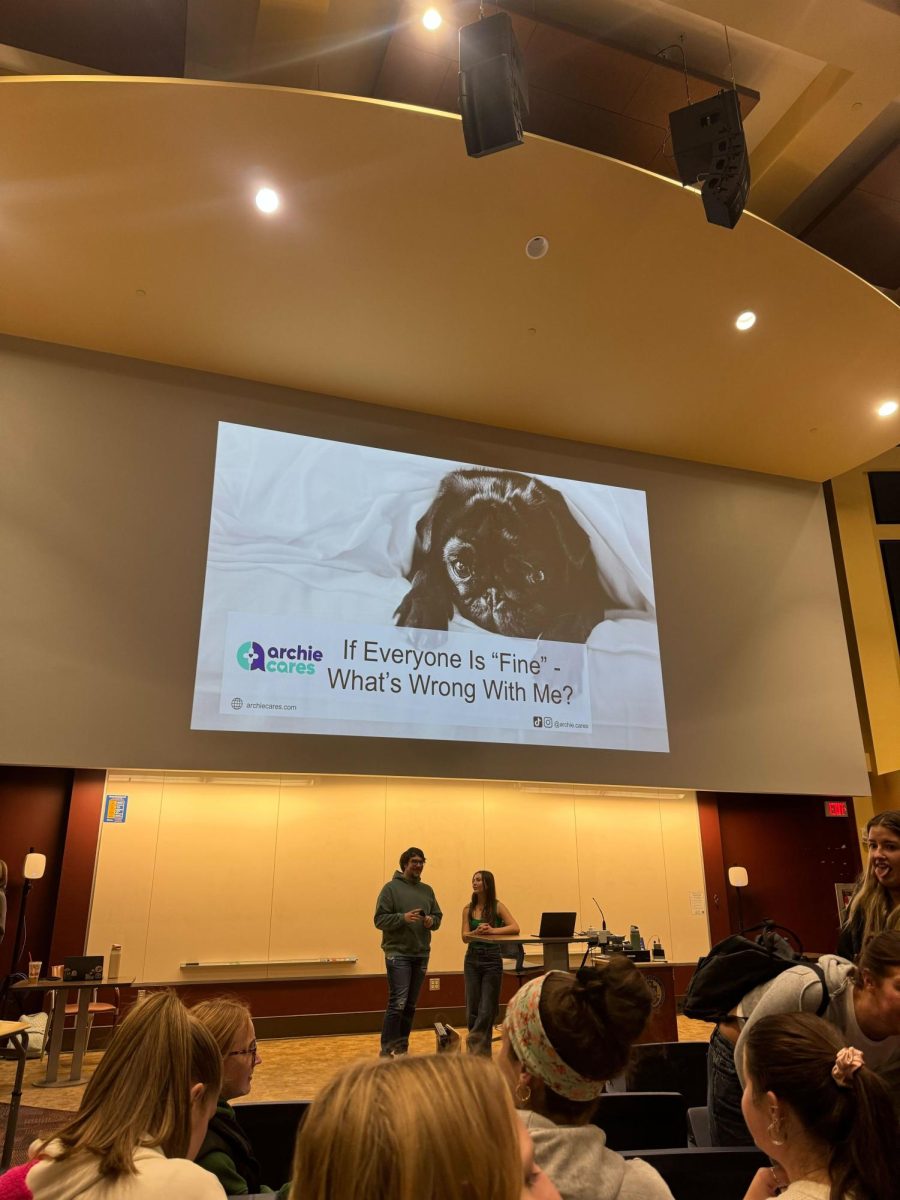Student group continues Israeli-Palestinian debate on campus
November 7, 2010
An Israeli journalist, blogger and filmmaker advocated for non-violence Friday night as he told… An Israeli journalist, blogger and filmmaker advocated for non-violence Friday night as he told a group gathered on campus that the Israeli government should reconsider the way it’s building a wall in the West Bank.
Joseph Dana, a 29-year-old, spoke to about 100 people gathered in David Lawrence Hall about the Palestinian popular struggle against the roughly 440 mile-long wall currently under construction by Israel. Dana is an active participant in the activism group Anarchists Against the Wall. His speech was part of an event called “Smash Israeli Apartheid,” which was sponsored by Students for Justice in Palestine.
“An Israeli speaking about Israel can be especially effective,” Pitt SJP member Karina Goulordava said. “He has a unique voice and he’s unique with certain ideas.”
Dana’s group was established in 2003 in response to the construction of a barrier in the West Bank. The group includes Israelis who work in cooperation with Palestinians in attempts to use nonviolent protests in a joint effort against Israeli occupation of the West Bank.
The organization does not have a solid platform of whether it supports a one-state, two-state or multiple-state solution, Dana said.
Dana is a Jewish American living in Jerusalem, and he doesn’t consider himself an anarchist, although some self-proclaimed anarchists have joined the group. He also said he is not a Zionist, or one who seeks to re-establish a Jewish nation in Palestine.
The object of Dana’s protests — the wall going up in the West Bank — has its roots in a period called the Second Intifada, a time of intensified Palestinian-Israeli violence starting in late 2000. Israel began construction of the part-concrete, part-wood wall in the summer of 2002.
Anarchists Against the Wall gained one of its first successes when it joined villagers from Budrus, in Palestine, in 2004. Through daily demonstrations, the village was able to push the wall almost completely off of its land.
This action has led to other villages to use the same tactics. But, Dana pointed out that the nonviolent demonstrations sometimes become violent.
“The nonviolent demonstrations exist, but it’s just that they are being crushed,” Dana said.
He discussed how unarmed demonstrations could eventually escalate to include the use of tear gas, rubber bullets and sometimes real bullets by Israeli forces.
Dana said that the military presence can create a panicked atmosphere. Young children will begin to throw rocks, which is considered symbolic. The military often responds by trying to break up the demonstration. He said the demonstrations’ organizers discourage stone throwing.
“The entire village comes out because it’s really a popular, civilian struggle,” Dana said.
Dana said he has faced physical violence as well, and that he was once shot in the leg.
As an Israeli facing Israeli soldiers, Dana is in a different position than Palestinians protesting.
“I can go up to a soldier and ask, ‘What would your mother think about what you’re doing, shooting 10 year-olds with bullets?’” Dana said.
Dana’s group has focused its most recent actions on around the village of Bil’in, northwest of Ramallah. Much of the village’s agricultural land is being confiscated due to the construction of the wall.
Dana said that the fence serves its purpose by protecting people from terrorism, but that he has a problem with where the fence is being built, on some land that is currently occupied by Palestinians.
Panthers for Israel President Sam Mellits wasn’t able to attend the event, but he said the security barrier is constructed in locations that are areas of intense conflict and even terrorism. Israeli officials have noted that violence and suicide attacks have declined as a result of the barrier.
In 2004, the International Court of Justice in The Hague gave an advisory opinion on Israel’s construction of the wall, saying it’s “contrary to international law” and doesn’t justify Israel’s security objectives.
Whereas Dana said that often he is portrayed as a traitor to Israel, he thinks what he is doing is still pro-Israel because he wants coexistence between the Israelis and Palestinians. Because he has been able to work alongside Palestinians, he thinks this goal is practical.
Dana said that he didn’t want to primarily focus the event on Palestinian grievances because he’s not Palestinian.
“What he’s doing is for the betterment of not just Palestine, but also Israel,” said Pitt SJP member Jonas Moffat.


